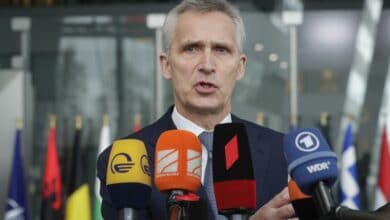No sign of light at end of tunnel as Sri Lanka food crisis looms

By Aanya Wipulasena
Colombo, June 8 (EFE).- Samanthi Priyanthika, a 35-year-old housewife, has not fed milk to her toddler for months.
The cost of milk powder has more than doubled since Sri Lanka announced that there was not enough foreign currency for imports. Priyanthika has now cut down on meals.
Her family only has two meals a day.
“I never thought I’ll not be able to feed my child at least a meal with sufficient nutrition for him to grow. I really worry about his health,” she told EFE.
For months, with depressingly low foreign currency reserves, Sri Lanka has run low on all the essentials, and with a dire shortage in fuel, cooking gas, and medicine, people are forced to stand in line for hours to get the rationed fuel, and cooking gas.
The country simply does not have enough stocks for distribution on most days.
According to the country’s Census and Statistics Department, inflation rose to 33.8 percent in April, a record high for the Indian Ocean Island nation.
It is the worst economic crisis to hit Sri Lanka since its independence from the British in 1948.
“I hope you all understand the situation we and our country face,” Prime Minister of Sri Lanka Ranil Wickremesinghe asked the nation when he made a statement in parliament on Tuesday.
He urged the people to get on board and pull the nation out of the crisis.
The country needs to find $3.3 billion to supply fuel for the next six months and $40 million to import gas for a month.
“The next three weeks will be a tough time for us in regard to fuel,” the prime minister warned. “It is time we all must use fuel and gas as carefully as possible. Non-essential travel should be limited as much as possible.”
The country is grappling with a crisis like no other- food is running short.
Wickremesinghe said a recent study by the World Food Programme found that 73 percent of participating households have reduced their diet or food intake.
He said the country would have to face “serious difficulties and shortages” of food and assured that the government was working to ensure three meals a day.
Several foreign aid organizations have come forward to help Sri Lanka to survive the ongoing crisis.
The International Federation of Red Cross and Red Crescent (IFRC) launched an emergency appeal for 28 million Swiss francs for relief to an estimated 500,000 people.
“We hold grave concerns for the most vulnerable communities across the country,” Udaya Regmi, IFRC South Asia head, said in a statement on Wednesday.
“Some 2.4 million people already living below the poverty line who are most affected by the loss of livelihoods, food shortages, and the spiraling cost of essential items.”





